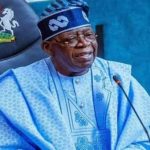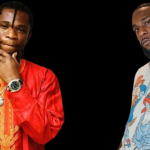China’s leader, Xi Jinping has secured a historic third term as president from the country’s rubber-stamp parliament.

Xi Jinping’s unprecedented third term as China’s president was officially endorsed by the country’s political elite on Friday, solidifying his control and making him the longest-serving head of state of Communist China since its founding in 1949.
The 69-year-old president received unanimous approval from the 2,952 members of the National People’s Congress (NPC) present a parliament session on Friday.
He was reappointed as president for another five years by China’s rubber-stamp legislature in a ceremonial vote in Beijing’s Great Hall of the People – a highly choreographed exercise in political theater meant to demonstrate the legitimacy and unity of the ruling elite.
The reappointment of Xi, China’s most powerful and authoritarian leader in decades, was largely seen as a formality after the 69-year-old president secured a norm-shattering third term as head of the Chinese Communist Party last fall.
In China, the presidency – or “state chairman” in Chinese – is a largely ceremonial title. Real power resides in the positions head of the party and military – two key roles that Xi also holds and was reappointed to at a key Communist Party congress in October.
Xi had done away with presidential term limits in 2018, clearing the way for him to gain another term. Last October, he was reconfirmed for another five years as general secretary of the central committee of the ruling Communist Party, making things set in his favour.
Following Xi’s election, officials approved by him are set to be appointed or elected to fill top positions in the cabinet over the next two days. This will include premier-in-waiting Li Qiang, who is expected to be named to China’s No.2 post, putting him in charge of managing the world’s second-largest economy.
The election sets up Xi to become communist China’s longest-serving president. He might even be able to rule well into his seventies, especially in the absence of an opponent.
Xi faced unprecedented opposition from the people of the country for the zero-Covid policy that kept people indoors and hurt the economy. Following the abrupt scrapping of the policy, China witnessed a wave of infections and deaths, but the reported numbers were mostly less than what the experts predicted to be.
KanyiDaily had also reported how China’s former justice minister, Fu Zhenghua was sentenced to death with a two-year reprieve for taking bribes and helping criminals including his brother.


![Tears Of Joy As Destiny Etiko Makes Promises To Fan Who Came To Meet Her From Owerri [Video] 2 Tears Of Joy As Destiny Etiko Makes Promises To Fan Who Came To Meet Her From Owerri [Video]](https://media.kanyidaily.com/2023/03/10093519/Destiny-Etiko-150x150.jpg)
![Singer Portable Injured, Sister Hospitalized After Being Attacked At His Restaurant [Video] 3 Singer Portable Injured, Sister Hospitalized After Being Attacked At His Restaurant [Video]](https://media.kanyidaily.com/2023/03/10110833/Portable-150x150.jpg)






![When You Stand Against My Miracle, If God Doesn't Kill You, I'll Close This Church – Odumeje [Video] 17 When You Stand Against My Miracle, If God Doesn't Kill You, I'll Close This Church – Odumeje [Video]](https://media.kanyidaily.com/2024/12/24120151/Odumeje-150x150.jpg)
![Davido Meet And Hug Burna Boy’s Mother At Tony Elumelu’s All-White Party [Video] 19 Davido Meets And Hugs Burna Boy’s Mother At Tony Elumelu’s All-White Party [Video]](https://media.kanyidaily.com/2024/12/24103656/Davido-Burna-Boy-150x150.jpg)
![Burna Boy Gift His Personal Assistant, King Manny A Tesla Cybertruck [Video] 21 Burna Boy Gift His Personal Assistant, King Manny A Tesla Cybertruck [Video]](https://media.kanyidaily.com/2024/12/24090326/Burna-Boy-gifts-his-PA-King-Manny-Tesla-Cyber-truck-150x150.jpg)
![Wizkid Acquires Brand New 2024 McLaren Worth N1.7 Billion [Video] 23 Wizkid Acquires Brand New 2024 McLaren Worth N1.7 Billion [Video]](https://media.kanyidaily.com/2024/12/24075909/Wizkid-150x150.jpg)

